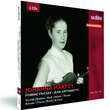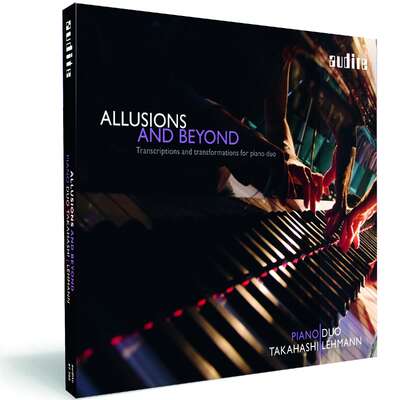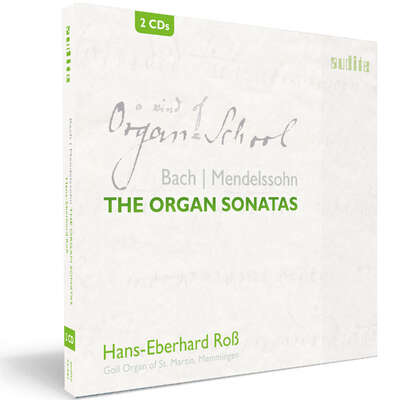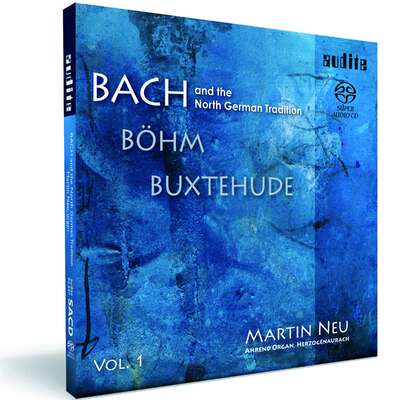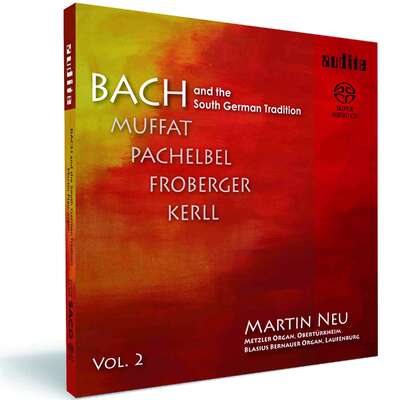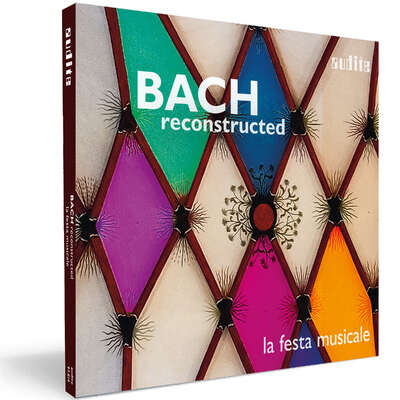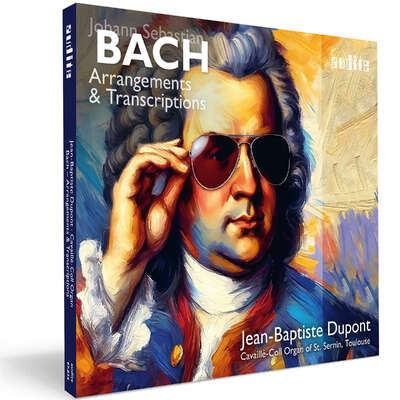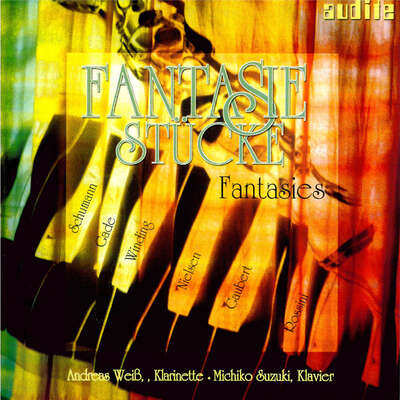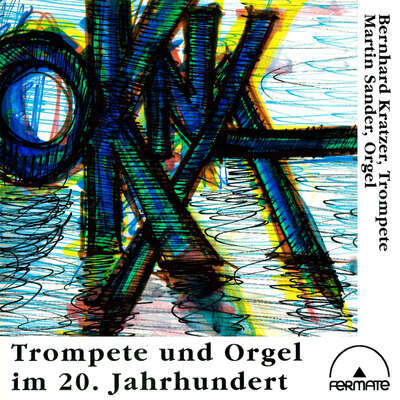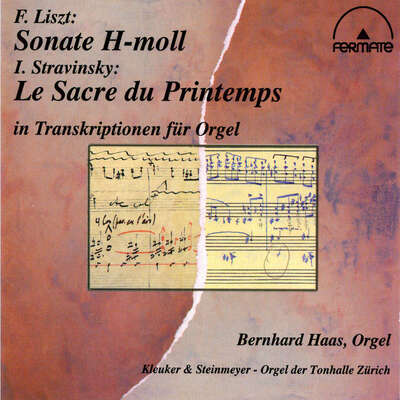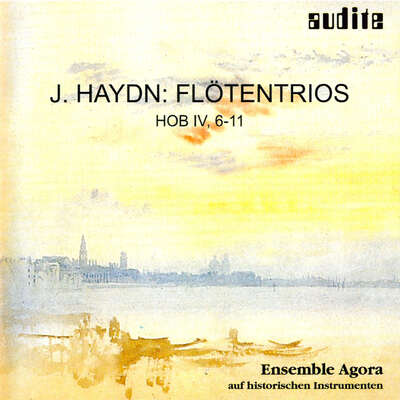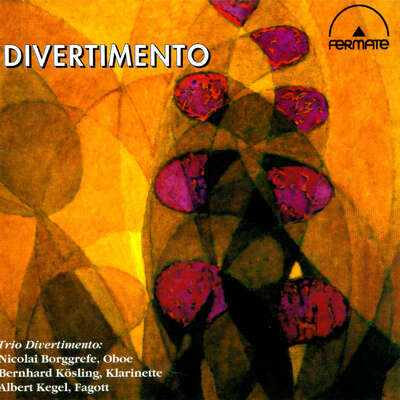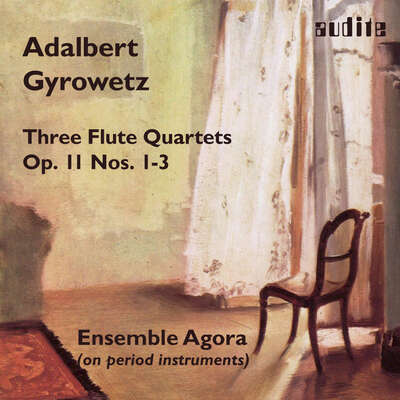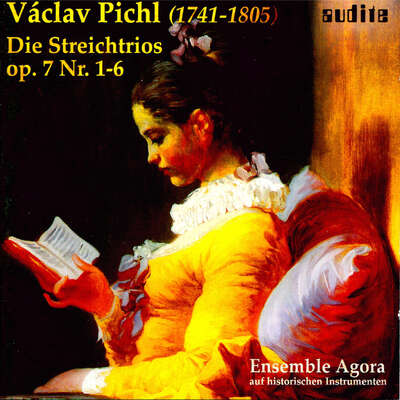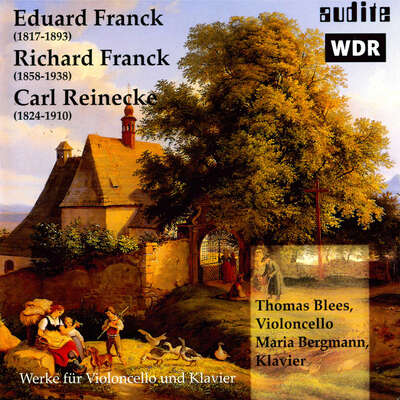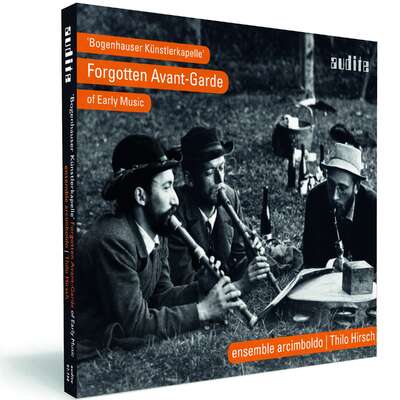
Die Edition zeigt eindrucksvoll, welcher Platz der ungarischen Geigerin Johanna Martzy trotz ihrer nur kurzen Karriere in der Geschichte des Violinspiels im 20. Jahrhundert zusteht. Ihr Name ist unter Kennern zu einem Mythos geworden, ihre Aufnahmen sind rare Sammlerstücke. Neben der Rundfunkproduktion von Dvoráks Violinkonzert beweisen die Kammermusikeinspielungen, dass Johanna Martzy auch am Ende ihrer Karriere noch ganz auf der Höhe ihres Könnens stand.mehr
Die Edition zeigt eindrucksvoll, welcher Platz der ungarischen Geigerin Johanna Martzy trotz ihrer nur kurzen Karriere in der Geschichte des Violinspiels im 20. Jahrhundert zusteht. Ihr Name ist unter Kennern zu einem Mythos geworden, ihre Aufnahmen sind rare Sammlerstücke. Neben der Rundfunkproduktion von Dvoráks Violinkonzert beweisen die Kammermusikeinspielungen, dass Johanna Martzy auch am Ende ihrer Karriere noch ganz auf der Höhe ihres Könnens stand.
Titelliste
Details
|
Portrait Johanna Martzy
Violin Concerto, Violin Sonatas & Violin Pieces, Berlin 1953-1966 |
|
| Artikelnummer: | 23.424 |
|---|---|
| EAN-Code: | 4022143234247 |
| Preisgruppe: | BCA |
| Veröffentlichungsdatum: | 6. Februar 2015 |
| Spielzeit: | 104 min. |
Zusatzmaterial
Informationen
Die ungarische Geigerin Johanna Martzy galt in den 1950er Jahren als eine der größten Hoffnungen ihrer Generation. Von der Schweiz aus eroberte sie ab 1950 alle großen europäischen Konzertbühnen. Durch eine Verkettung unglücklicher Ereignisse überschritt ihre Karriere allerdings den Höhepunkt schon Anfang der 1960er Jahre. Ende des Jahrzehnts kam ihre einst so glänzend begonnene Karriere schließlich ganz zum Erliegen. Die Skrupel der ernsthaften und introvertierten Musikerin überwogen die Sehnsucht und die Versuchung, ein Leben im Rampenlicht zu führen. Da Johanna Martzys Schallplattenkarriere nur vier Jahre währte, ist ihr Name unter Kennern zu einem Mythos geworden - ihre Aufnahmen sind rare Sammlerstücke. Ihre sehr bewusste Repertoireauswahl stand in Einklang mit ihrer Art zu musizieren. Der klare und strahlende, schnörkellose Ton ihrer bevorzugten Carlo Bergonzi-Violine verleihen ihrem Spiel ein deutliches und leicht wieder zu erkennendes Profil. Sie beschränkte sich auf eine sehr überschaubare Anzahl an Werken, von Bach bis zur gemäßigten Moderne, beherrschte diese jedoch vollendet. 1953 wurde sie vom RIAS (heute: Deutschlandradio Kultur) anlässlich eines Konzertes mit Ferenc Fricsay und dem RIAS-Symphonie-Orchester zu einer Produktion des Violinkonzertes a-Moll op. 53 von Antonín Dvořák verpflichtet. Da das Orchester zu diesem Zeitpunkt unter dem Schock der drohenden Auflösung stand, plante man, um finanzielle Unterstützung jenseits vom Rundfunk zu finden, eine Schallplattenaufnahme desselben Werkes mit der Deutschen Grammophon. Obwohl beide Einspielungen im Abstand weniger Tage im selben Aufnahmeraum stattfanden, unterscheiden sie sich vor allem im Klangbild beträchtlich. Die Rundfunkaufnahme, von der man lange Zeit annahm, dass sie mit der Schallplattenaufnahme identisch sei, wird hier nun zum ersten Mal veröffentlicht. In den 1960er Jahren, als sich Johanna Martzy bereits aus privaten Gründen von den großen Konzertbühnen zurückzuziehen begonnen hatte, kam sie regelmäßig nach Berlin zu Recitals mit ihrem Klavierpartner Jean Antonietti. Bei diesen Gelegenheiten besuchte sie auch mehrmals die Aufnahmestudios des RIAS. Alle der hierbei entstandenen und heute noch existierenden Einspielungen sind in dieser Edition zu hören. Sie bestechen durch die Souveränität und Tonschönheit von Johanna Martzys Geigenspiel und zeigen, dass sie damals immer noch ganz auf der Höhe ihres Könnens war. Ihr Tod im Jahre 1979, von der Öffentlichkeit schon kaum mehr wahrgenommen, bedeutete daher einen tragischen Verlust für die Musikwelt.
Besprechungen
Classica – le meilleur de la musique classique & de la hi-fi | Numéro 199 - Février 2018 | Jean-Charles Hoffelé | 1. Februar 2018
Quelques années avant J.-C.
Johanna Martzy
Mengelberg la dirigeant à Budapest en 1943 fut soufflé: belle filleMehr lesen
www.concertonet.com | 08/15/2015 | Sébastien Gauthier | 15. August 2015
La violoniste hongroise (née en Roumanie) Johanna Martzy (1924-1979) est quelque peu oubliée aujourd’hui: voici trois disques qui viennent à juste titre nous rappeler la grande soliste qu’elle fut, en dépit d’une carrière relativement brève qu’elle abandonna dès 1966.Mehr lesen
Record Geijutsu | 07/2015 | 1. Juli 2015
Japanische Rezension siehe PDF!Mehr lesen
Crescendo Magazine | Le 22 juin 2015 | Patrice Lieberman | 22. Juni 2015 Johanna Martzy, une redécouverte majeure
Johanna Martzy est un pur-sang au jeu noble, altier, fougueux, au son de bronze, pur et noble.Mehr lesen
The Strad | June 16, 2015 | Tully Potter | 16. Juni 2015 Historic recordings by a great Hungarian violinist
It is a magnificent performance of great power and intensity, especially where it is most necessary, in the Adagio. I normally find non-Czech interpretations of this concerto easy to resist but Martzy and Fricsay pay such attention to the rhythms that the result is irresistible. Even if you have the DG version, you need this one.Mehr lesen
El arte de la fuga | Sab, 13 jun, 2015 | Roberto Andrade | 13. Juni 2015 Johanna Martzy, una estrella del la escuela húngara de violin
Aunque nacida en Temesvar, hoy Timisoara (Rumanía), Johanna Martzy fue, en el siglo XX, unas de las representantes más notables de la escuelaMehr lesen
Su discografía para EMI, muy valiosa, ha sido recuperada parcialmente (Bach, Schubert) por Testament, y DG ha rescatado otras grabaciones suyas, pero buena parte de ellas son desconocidas para el aficionado actual. Este doble álbum AUDITE ofrece registros de muy buena calidad técnica, realizados por la RIAS de Berlín entre 1953 y 1966: obras de cámara, el Concierto de Dvorak y algunas miniaturas. Una vez más se confirma que Martzy fue una violinista de alta escuela: bello sonido, limpio, cálido y bien proyectado, técnica muy segura, ajena a alardes virtuosistas, afinación intachable y –cualidad rara hoy día- una fuerte personalidad, que dota a sus ejecuciones de un vigor interno y un carácter que las mantiene vivas para el oyente actual, con independencia de modas o maneras de época, cosa que no han logrado las de otros violinistas de entonces (un solo ejemplo: Mischa Elman). Martzy fue plenamente merecedora del decidido apoyo de Walter Legge a comienzos de los años 50; solo la posterior contratación por EMI de nombres fuera de serie como Oistraj y Kogan le retiraron a Martzy el favor de Legge, aunque también se han aducido motivos extramusicales.
Del programa ofrecido por AUDITE, los registros que más acusan el paso de los años son la Sonata de Haendel y la de Vivaldi en arreglo de Respighi, aunque la colaboración del pianista Jean Antonietti en ambas es correcta. Los resultados son mejores en la Primera Sonata de Brahms, opus 78: Martzy da una versión muy lírica, delicada y elegante, de auténtico sabor brahmsiano; con un pianista más poético, la versión hubiera sido redonda. La Primera Sonata a solo de Bach, BWV1001 en sol menor, atrae por su vigorosa realización, llena de autoridad y radiante de luz, con una fuga de nítida construcción. Por supuesto, el vibrato es intenso, pero Martzy defiende su enfoque con pleno acierto. Muy hermoso el Concierto en la menor de Dvorak: el registro monoaural que propone AUDITE es coetáneo del publicado en su día por DG. La apasionada solista muestra una profunda afinidad con la música de Dvorak y la orquesta RIAS responde admirablemente a la encendida batuta de Fricsay: una de las muy buenas versiones de esta bella obra, con un precioso tiempo lento. Por último, los cuatro bises o miniaturas bastarían para acreditar la muy elevada talla artística de Johanna Martzy: en cualquiera de ellas, y en unos pocos minutos, Martzy demuestra su excepcional calidad de sonido y su talento innato para amoldarlo al carácter de cada obra, que brilla como una pequeña joya, sea la bellísima Berceuse de Ravel, el encantador Rondino de Kreisler o la sensual Danza de La Vida Breve, transcrita por Kreisler. Un perfecto homenaje a una gran artista que merece ser recordada.
www.musicweb-international.com | June 2015 | Stephen Greenbank | 1. Juni 2015 Recording of the Month
The violinist Johanna Martzy isn’t that well known today. Other female violinists, like Erica Morini and Ida Haendel, whose concertizing wasMehr lesen
Romanian by birth, Martzy took up the violin at the age of six, later becoming a student at the Franz Liszt Academy, Budapest. Her teacher was Jenő Hubay (1858-1937), the Hungarian violinist and composer, whose students included Szigeti, Telmányi, Székely, Geyer and Sándor Végh. She made her début at the age of thirteen and graduated from the Academy in 1942. In 1947 she won first prize in the Geneva Competition. Starting her recording career with DG, she was later brought under the wing of EMI by Walter Legge. Her commercial recorded legacy is slender, and her international career was short-lived. In 1969 she married the wealthy Daniel Tschudi and thereafter seemed to lack the financial incentive to continue in an active role. She died of cancer in 1979, largely forgotten.
Martzy’s brief recording career began with DG, and lasted only three years. On 8 June 1953 she was scheduled to make a RIAS studio radio broadcast recording of the Dvorak Concerto with the Hungarian conductor Ferenc Fricsay. In addition, due to worries about the future of the orchestra at the time, a commercial recording was made for DG two days later (10-12 June), with the same forces and in the same venue, in order to strengthen its finances. A projected Tchaikovsky Concerto with the conductor was also on the cards for 1953, but never materialized. Like Martzy, Fricsay was not blessed with a long life, succumbing to cancer at the young age of forty-eight in 1963.
The Dvorak Concerto is the most substantial offering on this set. It is a compelling performance, technically accomplished, standing comparison with the best in the catalogue, especially that of Josef Suk/Czech Philharmonic/Neumann which heads my list of favourites. The work is an amalgam of Czech national music and folksong. In the first movement, Martzy lovingly caresses the more lyrical moments, imbuing them with a sense of longing. In the slow movement, which forms the emotional heart of the Concerto, there is fervour without over-sentimentality. The Finale is rhythmically engaging, and permeated with a Czech flavour. Everything is kept buoyant and dance-like. Comparison between the DG commercial recording and this version reveal no interpretive divergence, however the violin is more forwardly positioned and consequently more prominent in the former.
The violinist’s only solo contribution in this set is the Bach Violin Sonata No. 1 in G Minor, BWV 1001. Martzy recorded the complete Sonatas and Partitas for Columbia in 1954-55 at Abbey Road Studios in London. This radio broadcast from 4 May 1962 has had a previous incarnation on Coup d’Archet (COUP CD007). Comparing the two side by side, the Audite transfer is a slight improvement. Noticeable is some slight background distortion on the Coup d’Archet transfer. Another live performance of the Sonata from the Redpath Hall Montreal dated 1960 on the Doremi label (DHR-7753) is in less than ideal sound. I have always enjoyed Martzy’s solo Bach for the beauty of tone, spotless intonation and richness of colour she draws from her Carlo Bergonzi fiddle. Especially distinctive is the precision of the counterpoint and clarity of articulation she brings to the fugue.
It was when performing at the Dutch Radio Station VARA that Martzy met Jean Antonietti (1915-1994), the director of music there. He is the pianist in the remaining works, and became a regular partner. Though starting off as a soloist, Antonietti’s career eventually became concentrated in accompanying, working with Elisabeth Schwarzkopf and the cellist Tibor de Machula. Martzy and Antonietti appeared for the first time together in February 1949 in Amsterdam.
The Brahms and Handel Sonatas were set down at the same session as the Bach, in the RIAS Funkhaus – Studio 7. The Brahms Sonata is marked by warmth and elegance and the outer movements never sag. It’s a lyrical work, and the players are expressive in the account they deliver. Beauty of tone is a distinctive hallmark of the Handel Sonata. It is a performance of refinement and nobility, with both players demonstrating a great affection for the music.
The Vivaldi Sonata has, surprisingly, been arranged by Respighi, and is a piece new to me. Nevertheless, it is a tastefully performed delight. The remaining four small encore pieces from April 1955 have already seen the light of day on Coup d’Archet (COUP CD006). The Beethoven/Kreisler Rondino is loaded with Viennese charm, without sounding in any way schmaltzy. The de Falla Danse Espagnole was recorded commercially for DG by Martzy and Antonietti in 1951. Again it is a Kreisler arrangement, dispatched brilliantly with suavity and elan.
This is a smartly presented, elegant gatefold digipak. Excellent, informative booklet notes by Rüdiger Albrecht, in German and English, provide a biographical portrait of the violinist and discuss the context and provenance of the recordings. Audite have done a wonderful job re-mastering these original analogue tapes from the RIAS archives, and sound quality throughout is top-notch. Though not stated, all the recordings are in mono.
Preis der Deutschen Schallplattenkritik | 13. Mai 2015 | Wilhelm Sinkovicz | 13. Mai 2015
Die ungarische Geigerin Johanna Martzy wurde trotz ihrer kurzen Karriere zu einer Interpreten-Legende. Diese Edition versammelt BerlinerMehr lesen
www.artalinna.com | 10 mai 2015 | Jean-Charles Hoffelé | 10. Mai 2015 Archet de feu
Mais le sommet reste la Première Sonate de Bach dont les polyphonies s’incarnent par un jeu sur les registres sciant – les basses rugissent, les aigus flutent, ce n’est plus un violon, c’est un orgue !Mehr lesen
Der neue Merker
| Mai 2015 | Dr. Ingobert Waltenberger | 1. Mai 2015
AUDITE: Hommage an die legendäre ungarische Geigerin Johanna Martzy auf 2 CDs
Deutschlandradio Kultur gibt die RIAS Bänder 1953 bis 1966 frei
Bei nachtwandlerisch sicherer Intonation zaubert die ungarische Virtuosin einen runden stets sinnlich-sängerischen Klang aus ihrer Carlo Bergonzi Violine. Der edel fokussierte Ton schimmert wie ein roter knackiger Apfel im Abendlicht. Und Martzy verzichtet dabei nicht auf den Hochseilakt der eigenen spontanen Lesart und des Risikos der unbedingten Hingabe an den Augenblick. [...] Das ausführliche Booklet erinnert in einem exzellenten Essay von Rüdiger Albrecht ausführlich an die nunmehr ein Stückchen mehr dem Vergessen entrissene ungarische Künstlerin.Mehr lesen
Märkische Oderzeitung | 02.04.2015 | Peter Philipps | 2. April 2015 Johanna wer? - Klangtüftler von audite graben Schätze aus
Das Violinkonzert von Dvorak sowie die Violinsonaten von Bach (g-moll) und Händel (A-Dur) klingen frisch und mit einer sehr unsentimentalen Wärme. Ravels „Berceuse sur le nom de Gabriel Fauré“ rundet den musikalischen Leckerbissen wie ein vorzügliches Dessert ab Mehr lesen
Audiophile Audition | April 1, 2015 | Gary Lemco | 1. April 2015
Any devotee of great violin playing and kindred instrumental partnerships will treasure this Martzy set with unbounded affection.Mehr lesen
Gramophone | April 2015 | 1. April 2015
At first glance the principal attraction in a two-disc set devoted to the art of violinist Johanna Martzy (1924-79) appears to duplicate a recordingMehr lesen
The remainder of Audite's set emanates from the 1960s. Dvorak's Concerto is tailed by a vibrant account of Brahms's First Sonata, and Martzy's sound is darker than in the orchestral work, with an Oistrakh-like radiance about it, especially in the first movement. The second CD opens with solo Bach, the G minor Sonata, and a reading that's notable for its rigour and the rhythmic security of the second movement fugue. Sonatas with piano by Handel (Op 1 No 3) and Vivaldi (RV10, arranged by Respighi), like the Bach, take us back to a period prior to the onset of 'original instruments' and sound as refreshing now as the 'authentic' performances sounded then. Martzy was a very musical player and charms in various shorter works (the pianist is Jean Antonietti).
Diapason | N° 634 Avril 2015 | Nicolas Derny | 1. April 2015
En 1953, Johanna Martzy entrait dans la cour des grands grâce à un concerto de Dvorak enregistré avec Ferenc Fricsay (DG). Quid de celui-ci, captéMehr lesen
Autre cheval de bataille de la Hongroise : la musique pour violon seul de Bach, dont elle signa au milieu des années 1950 une intégrale incontournable. Immortalisée le 4 mai 1962 (témoignage déjà édité par le label Coup d'Archet), la BWV 1001 passionne tout autant. Chair généreuse (quelles basses !), vibrato marqué, ligne mélodique soutenue sans répit, sa patte rigoureuse se reconnaît de loin. Abordées dans le même esprit, les Sonates op. 1 n° 3 de Handel et RV 10 de Vivaldi/Respighi sont hors d'âge, et cela fait tout leur charme. Auquel on succombe, jusque dans la moindre inflexion mélodique (chez le Saxon surtout).
Le talon d'Achille de Martzy ? Jean Antonietti, « accompagnateur » fidèle et prosaïque. Difficile, voire impossible, avec un partenaire aussi limité, d'établir le dialogue attendu dans l'Opus 78 de Brahms. La violoniste, qui porte la culotte et se consume de l'intérieur, est aussi coupable en vérité. Pour que le miracle opère, il faut qu'un duo se parle. On préfère se souvenir de lui par ses inestimables Schubert (Diapason d'or, Testament). Ou céder à la Danse espagnole de Falla, la plus délicieuse des miniatures offertes en complément.
www.classical.net | 01.04.2015 | Brian Wigman | 1. April 2015
she's [Martzy] excellently supported by the radio orchestra and sings sweetly throughout.Mehr lesen
BBC Radio 3 | 07.03.2015 | 7. März 2015 BROADCAST
Sendebeleg siehe PDF!Mehr lesen
BBC Music Magazine | March 2015 | Julian Haylock | 1. März 2015
Another invaluable collection of Martzy recordings, including a glorious account of the Dvorak Violin Concerto recorded for Berlin radio in 1953, twoMehr lesen
Kulturspiegel | März 2015 | sal | 1. März 2015 Neue Klassik-Alben
Mit der akustischen Ehrenrettung dieser großen ungarischen Geigerin ist Remastering-Experte Ludger Böckenhoff wieder mal eine kleine Großtat gelungenMehr lesen
